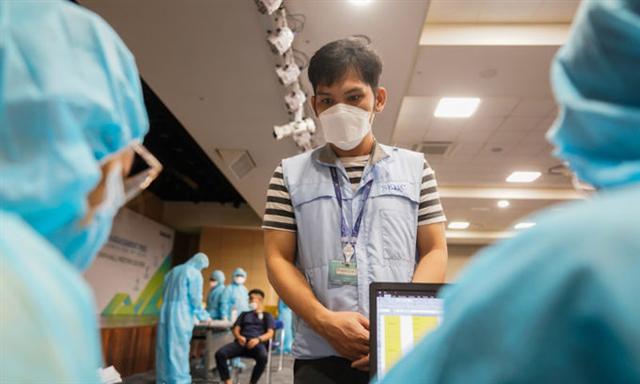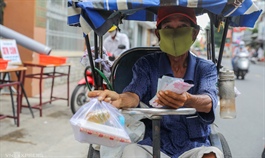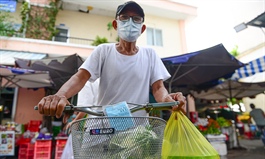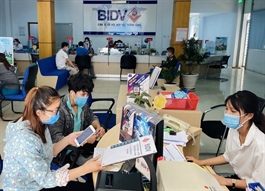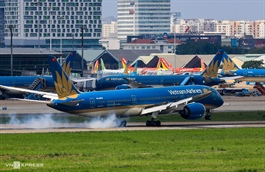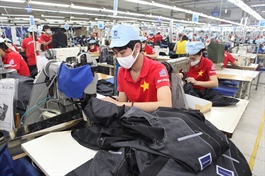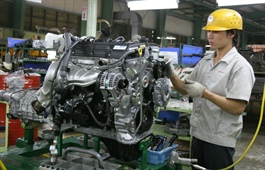Worker shortage prolonged by pandemic, firms struggle
Worker shortage prolonged by pandemic, firms struggle
The fourth Covid-19 wave has made it more difficult for businesses to hire the employees they need to fulfill the increased orders that they have been getting.
Medical staff takes samples of employees at a factory to test for the novel coronavirus in Ho Chi Minh City. Photo by VnExpress/Huu Khoa.
|
The Bac Giang Garment Corporation (LGG) in northern Vietnam is experiencing a major labor shortage with only 10 percent of its employees working.
CEO Luu Tien Chung said at a recent meeting that most of LGG’s employees are isolated at home, with the province being the second largest Covid-19 hotspot in the country behind Ho Chi Minh City.
The fact that every employee has to test negative twice for Covid-19 makes recruiting more challenging, he said, adding that the company was struggling to fulfill orders.
Many companies nationwide are in a similar predicament. The nation’s has recorded nearly 21,300 new cases in the new Covid-19 wave starting late April.
Footwear and bag producer Pousung Vietnam in the southern province of Dong Nai has had nearly 3,000 employees, or 12 percent of their total workforce, isolated at home due to Covid-19.
Le Nhat Truong, head of the company’s labor union, said that more workers might have to be quarantined as the province continues testing residents.
"With employees isolated, the factory’s productivity has fallen. This will hurt the company’s revenue and subsequently employees’ income," he told the Thanh Nien newspaper.
Nguyen Quoc Anh, the CEO of rubber producer Duc Minh in Ho Chi Minh City, said that around 10 percent of his employees have been staying at home as the city cordons off large areas to contain the spread of the novel coronavirus.
The company has been asking its employees to work overtime and has set up space for its employees to sleep onsite to reduce contagion risks.
Le Duy Toan, the CEO of HCMC-based food producer Duy Anh Foods, said that although recruitment demand rose by 10 percent in the first six months, the company had to scrap plans to hire more over fears that the new candidates might spread the virus in the factory and force a shut down.
"We decided to stop taking new orders rather than taking risks."
HCMC-based garment producer Dony, however, has been recruiting aggressively because of the large shortage of human resources.
Pham Quang Anh, CEO, said that the recruitment method has changed.
To reduce contact with other employees, candidates will have a face-to-face interview first, and after passing that round, he or she will be allowed to test skills in the factory. Before the pandemic, it was the other way around.


